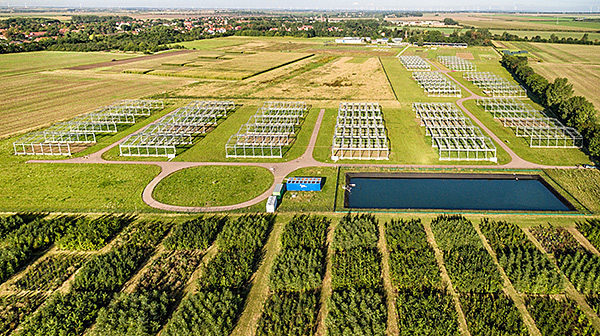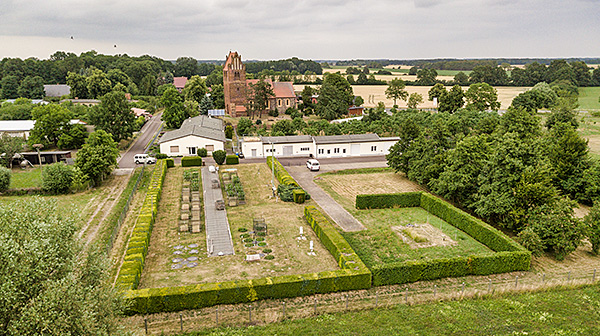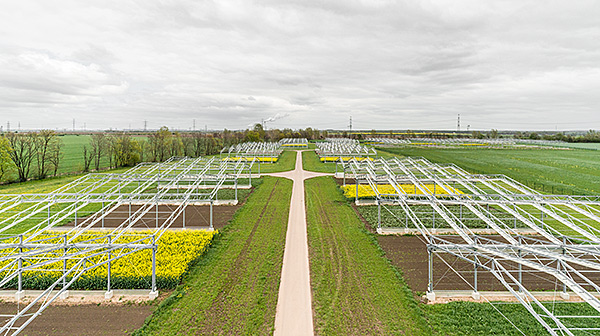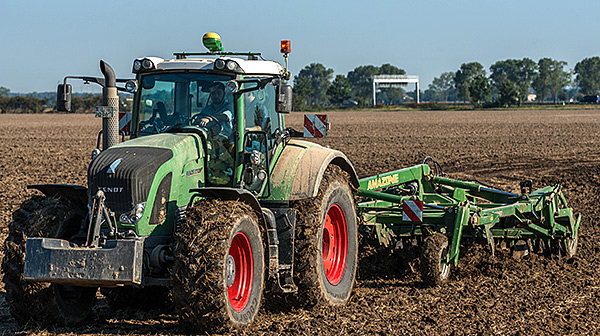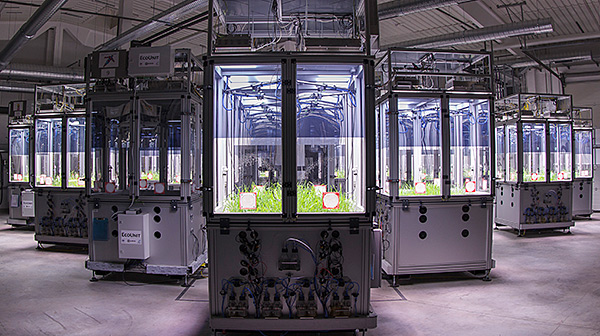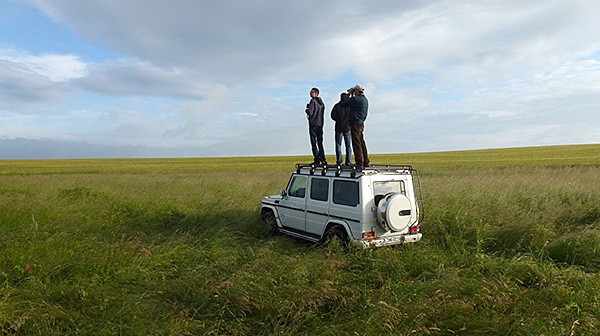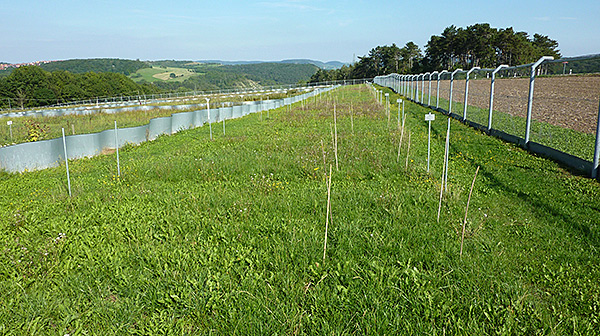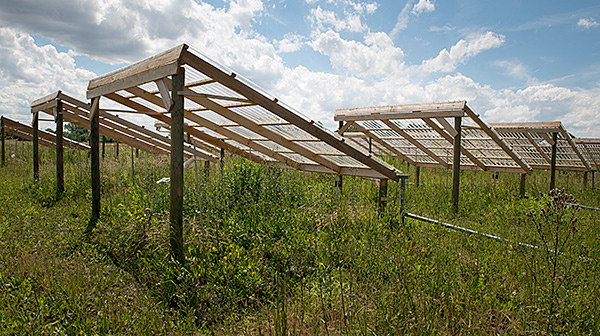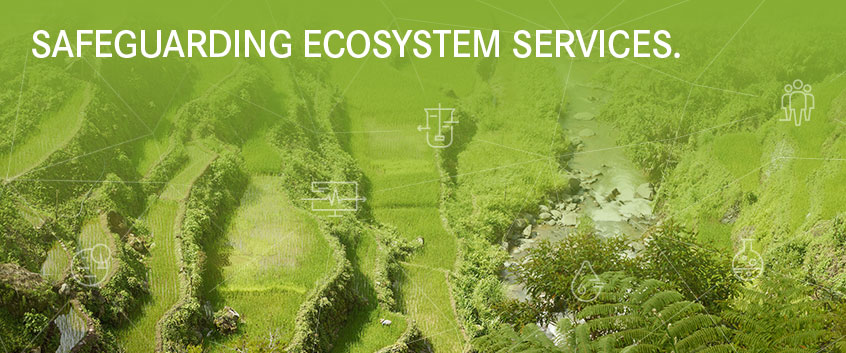
Research Unit
Ecosystems of the Future
Ecosystems of the future must fulfil the different needs and requirements of humans and society.
To that end, we need to understand how processes in ecosystems work and how they are connected. We need to develop strategies and instruments that ensure the persistence of various ecosystem services and the resistance of ecosystems in times of global change and increasing pressure, because they are the foundations of life and a guarantee for the persistence and the development of human societies.
Challenges
Like never before, humans are having an impact on their natural resource bases – ecosystems (and the services that they provide), which ultimately guarantee the persistence and the development of human societies. Many ecosystems are currently operating at their limits.
With their global trade in food and raw materials, Germany and the EU have a responsibility for the international use and distribution of natural resources.
The rate at which humankind currently appropriates its natural resources is much higher than the rate at which they can be replenished. Germany and the EU have a responsibility for the global use and distribution of natural resources. The growth rates for the use of many natural resources exceeded their climax at the start of the 21st Century. Thereby, the limited resource ‘land’ is at the crux of the matter ‒ not only in Germany, but also in other countries around the world.
The answer to these challenges is a sustainable development of rural and urban areas and a sustainable provision of ecosystem services – goals that are embodied in the Environment Programme of the German federal government and in the Sustainable Development Goals of the United Nations.
Questions
But how do ecosystems work? How exactly are they influenced by complex biotic and abiotic interactions? How much stress can they withstand and absorb? When will they lose their ability to regenerate? What are the functions of species and species communities? What exactly do ecosystems provide to society? Which economic and legal instruments can contribute to reconciling land use conflicts and maintaining ecosystem functions and services?
Scientists working in the thematic area ‘future ecosystems’ conduct research on the material and energy flows in ecosystems, on structural and functional aspects of biodiversity as well as the causes and impacts of anthropogenic changes. For example, they investigate on different scales, which and how many species occur in specific ecosystems, which ecosystem services and resources they generate, how stable populations and ecosystems are, which environmental stress factors affect them and what kind of regeneration potential they have. Researchers develop sustainable policy options for managing natural resources sustainably – beyond the simplified alternatives of “protection” or “use”. This means that they have to take into account basic economic, legal and social conditions, while also considering ecological and technical knowledge and the fact that the ecosystems being used also provide numerous services and that it is therefore of upmost importance to protect them.
In selected model landscapes in Germany, Europe and ‘hot spot’ regions of the world such as South East Asia, case studies are being implemented to explain how eco-system services can be maintained and optimised for the long term: provisioning ecosystem services such as food provision, supporting ecosystem services such as carbon sequestration or nutrient cycling, regulating ecosystem services such as natural pest control or flood water control and cultural ecosystem services such as recreation. Research is being conducted to establish the drivers of land use change in rural, forest and urban systems and how a better land use management can not only preserve the multi - functionality of a landscape, but also its biodiversity and resilience ‒ in other words the ability of an ecosystem to maintain its basic functions after disturbance or overexploitation.
Researchers are developing policy options beyond the simplified alternatives of “protection” or “use”.
In order to make the state, development trends and potential of an ecosystem both measurable and comparable, indicators are being developed to assess the state of eco-systems and the services that they provide – comparable to those indicators that were developed for the good chemical and biological condition of surface waters. Instead of using chemicals or technology solutions that are energy and raw material - intensive, “nature - based solutions” like the natural pollination potential or biologically - driven material cycles and other naturally adapted processes can help with pest control for example or with the adaptation to climate change.
Researchers from different disciplines have access to various tools: laboratories for genetic analyses, large data-bases with biological and abiotic information, new model approaches, so-called Ecotrons (fully air - conditioned research units for the manipulation and measurement of complex ecological processes), controlled field experiments such as the Global Change Experimental Facility (GCEF) or observatories and monitoring platforms, which they themselves have initiated, developed and set up.
The phytometer platform TrophinOak and PhytOakmeter focus on biotic and abiotic interactions with the clonal Oak tree DF159 under laboratory, green house and field conditions. Transcriptomic and metagenomic analyses are coupled with traits and allocation analyses in order to better understand how this important forest tree with complex multitrophic interactions can adapt under a changing environment. The TrophinOak project started in 2010 at the Helmholtz- Centre for Environmental Research - UFZ under the financial support of the DFG.
Models enable the process - based knowledge from experiments, monitoring and databases to be linked together; they allow for integrating the results of structural and functional biodiversity research; they enable impacts on the level of organisms to be followed over time; and they allow potential landscape changes under different land - use scenarios to be simulated. This broad spectrum enables holistic system solutions to be developed.
In the field of ecosystem research, the UFZ has initiated extensive national and international projects and networks or at least supported them with its expertise. Examples are the cooperative project BonaRes, a measure funded by the German Federal Ministry of Education and Research (BMBF) where the system soil is the focus as a sustainable resource for bioeconomics, or the cooperative project GLUES within the programme „sustainable land management“ of the BMBF.
With the HORIZON 2020 project eLTER, the European research infrastructure is to be linked to long - term research on ecosystems. Furthermore, the global network Drought - Net is investigating the sensitivity of terrestrial ecosystems to droughts, whereas the efforts of the international research co - operation Nutrient Network allow the effects of nutrients to be recorded all over the world. One of the most important partners thereby is the German Center for Integrative Biodiversity Research (iDiv) Halle - Jena - Leipzig, for which the Universities of Halle, Jena and Leipzig, the UFZ and other research institutions are founding members.
In order to make knowledge and new insights available to various stakeholders in society as well as decision - makers, they are comprehensively and continuously involved in projects, networks and processes. An important interface is the German Network - Forum for Biodiversity Research (NeFo), which is coordinated at the UFZ. Citizen’s science projects such as the Butterfly Monitoring Scheme Germany are increasingly inspiring citizens to get involved in research or to come up with their own research questions. Socio - scientific studies on agrarian landscapes or co - operation with science - policy platforms encourage dialogues with central decision - makers.
It is of great importance that UFZ scientists participate in national and international platforms and committees such as the Intergovernmental Panel on Climatic Change (IPCC), the Intergovernmental Science - Policy Platform on Biodiversity and Ecosystem Services (IPBES) or the Bioeconomy Council. In doing so, they make important contributions to the implementation of Germany’s national biodiversity strategy and to the Convention on Biological Diversity (CBD).
News
Highlights from the Research Unit
The PhD Cohort GLIMPSE will analyse the interacting effects of global change and land-use on ecosystem functions.
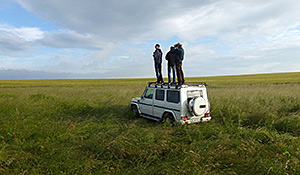
The LTER network is a worldwide platform for long-term ecological and ecosystem observations.
LTER Europe
LTER Deutschland
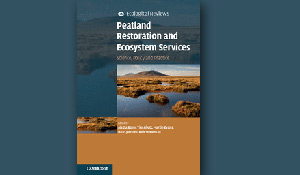
"Peatland Restoration and Ecosystem Services" by Cambridge University Press. Editors among others: Prof. Aletta Bonn (Head of the Department of Ecosystem Services, UFZ).
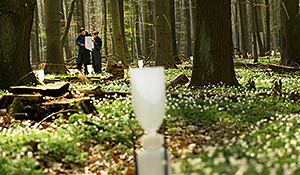
iDiv (German Centre for Integrative Biodiversity Research) is a DFG research centre with more than 350 employees and members based primarily in Halle, Jena and Leipzig. Here, researchers from 30 nations establish the scientific basis for the sustainable management of our planet’s biodiversity.
Infrastructures & Publications
The complete list of publications can be found on the department pages:
Computational Landscape Ecology
Computational Landscape Ecology
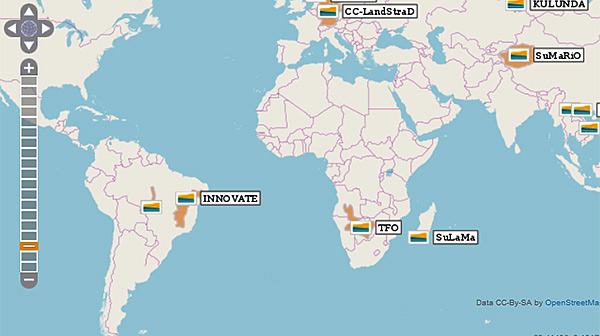
|
Interactive Webtool: Global Agricultural Production: Trends and Stability |
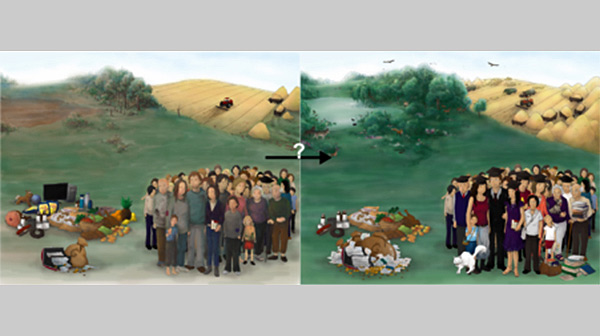
|
LandYOUs - How to use land? A web based game |
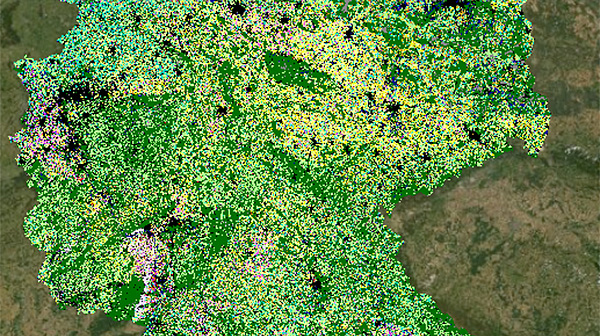
|
UFZ Metadata Catalog for spatial resources |
Experimental Platforms & Observatories




